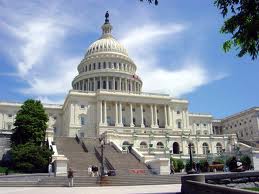 US Congress claims that the SOPA and PIPA were proposed in the name of stopping online piracy and to help protect the rights of creators. However, these acts come at the expense of free speech or due process and pose a serious threat to the integrity of the internet.
US Congress claims that the SOPA and PIPA were proposed in the name of stopping online piracy and to help protect the rights of creators. However, these acts come at the expense of free speech or due process and pose a serious threat to the integrity of the internet.
If passed, they would allow for censorship of the internet using the same tools that are used to silence political dissenters and activists in countries including China, Iran, Yemen and Saudi Arabia. It will stifle free speech, innovation and undermine internet security, all for the sake of Hollywood studios.
“It is unacceptable to tell oppressive governments not to censor the internet for political purposes if the US and Western governments are prepared to do the same for the sake of Hollywood studios selling more DVDs. The US government cannot credibly promote internet freedom abroad if it does not take it seriously at home,” said Dr Agnès Callamard, Article 19 Executive Director.
Worldwide protest against US anti-piracy laws
52 organizations worldwide sent a letter on 16 January to the Majority Leader of the US Senate to protest against US anti-piracy laws.
According to the letter, SOPA and PIPA require the use of internet censorship tools, undermines the global nature of the internet, and threatens free speech online. The US has long been a global leader in support of freedom of speech online, so Senate should not tarnish that reputation by passing PIPA.
The organizations express their fear that after institutionalizing the use of internet censorship tools undermines its moral authority to criticize repressive regimes.
“Today, some of the world’s most repressive countries, like China, Iran, Yemen, Saudi Arabia, and Syria use DNS filtering as a means to silence their citizens. […] In fact, PIPA would send an unequivocal message to other nations that the use of these tools is not only acceptable, but encouraged.” says the letter.
Bills do not respect global nature of internet
The organizations also pay attention to the fact that the attempts at due process provisions in this bill do not respect the global nature of the internet.
global nature of the internet.
“The network effects of the internet are realized when users and innovators are able to connect around the globe. However, creating a mechanism that requires a representative of a website to make a court appearance in the US in order to defend themselves against an allegation of infringement would disproportionately impact smaller online communities and start-ups based abroad that do not have the capacity to address concerns in the US.”
According to the letter authors, PIPA further creates a double jurisdiction problem, whereby non-US-based sites must determine whether a site is legal in both the country it is operating in and the US.
“This raises serious concerns about the scope of the bill, as foreign websites falling under PIPA’s definition of infringement may be perfectly legal in other jurisdictions. For example, the domain of a Spanish site, rojadirecta.org, was seized in early 2011 by US authorities without adequate due process, notification to the site’s owners, or an option to defend themselves, despite having been declared legal by two Spanish courts.”
How will be links defined?
International human rights community warns that PIPA is also vague with respect to how links would be defined, including if all links associated with a domain or subdomain would be required to be blocked and if this would apply to future attempts by users to post content.
“This provision could potentially be interpreted in a way that would force services that allow users to post links to proactively monitor and censor the activities of their users, dramatically altering the role of these platforms in promoting free speech and setting a dangerous precedent for other countries.”
 Article 19 also pays attention to the fact PIPA will affect non-US websites and users. By encouraging a take-down by default approach by internet service providers and domain registrars, millions of innocent websites could be taken down, restricting the free flow of information and users’ right to seek, receive and impart information, protected by international human rights law.
Article 19 also pays attention to the fact PIPA will affect non-US websites and users. By encouraging a take-down by default approach by internet service providers and domain registrars, millions of innocent websites could be taken down, restricting the free flow of information and users’ right to seek, receive and impart information, protected by international human rights law.
Foreign websites will have to both comply with the legislation of the country in which they are operating and US law or else risk losing access to payment providers, advertising and links to their site. This will affect scores of small businesses who may end up losing their funding because of one infringing link when the rest of the website contains perfectly legitimate content.
Bills suggest censoring is not only acceptable, but encouraged
52 organisations worldwide underline that the internet is a key enabler of human rights and innovation, and decisions over its governance should not be made hastily and without full consideration of collateral consequences.
“Article 19 calls on US legislators to stand up for human rights and internet freedom by rejecting this legislation. We also call on all those who value internet freedom, to join Article 19 and organisations worldwide in this blackout campaign” continued Callamard.
Related articles:
UN: online expression must remain free of censorship
UN HRC adopted document on freedom of expression
No frontiers, new barriers – free speech and attempts to stop it
Five billion people in the world have the right to information





